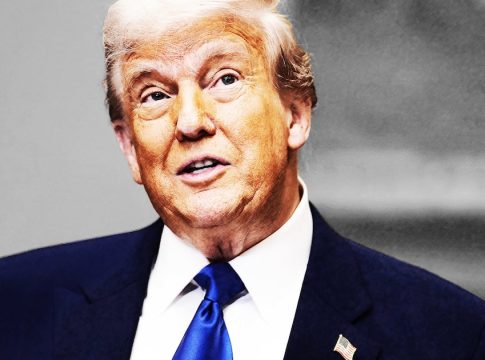Trump’s Rejection of White Collar Crime: Implications for Oligarchy and Justice
In a recent appearance on The Daily Beast Podcast, journalist Evan Osnos discussed former President Donald Trump’s controversial rejection of the concept of white collar crime, particularly in light of his dismantling of Task Force KleptoCapture—an anti-corruption initiative established under the Biden administration to target Russian oligarchs. Osnos’s insights shed light on the broader implications of Trump’s stance in the current political landscape.
Task Force KleptoCapture: A Brief Overview
Task Force KleptoCapture was announced shortly after Russia’s invasion of Ukraine in February 2022, with the intention of ensuring accountability for those contributing to the Russian regime through corruption and sanctions evasion. The initiative aimed to utilize all available tools to freeze and seize the illicit assets of wealthy Russian individuals. In a press release, Deputy Attorney General Lisa O. Monaco stated: “Oligarchs be warned: We will use every tool to freeze and seize your criminal proceeds.”
However, in a strategic pivot, Trump eliminated this task force shortly after taking office, redirecting resources towards addressing drug cartels and transnational criminal organizations.
Rejecting the Premise of Oligarchy
Osnos emphasized that Trump’s actions are indicative of a profound rejection of the notion of oligarchy itself. He articulated that Trump seems offended by the very idea of white collar crime, citing his own tumultuous experiences in the business world as a potential influence on his views. “He’s essentially telling Russian oligarchs whose assets have been seized, ‘You’re free to go,’” Osnos remarked. “He dismisses the notion that wealth can be illegitimately acquired.”
The implications of this dismissal extend beyond American borders, suggesting a geopolitical shift in how the United States addresses issues of corruption and power dynamics internationally.
A Political Landscape Shaped by Trump
Osnos also explored the aspirational impact of Trump’s presidency on wealthy individuals, particularly in Silicon Valley. He noted that many affluent entrepreneurs now believe that if someone with Trump’s background can ascend to the presidency, then they too might aspire to that pinnacle of political power. “His idiosyncratic social and political genius positions him as a critic of the elite,” Osnos explained. This dynamic allows Trump to resonate with working-class individuals while simultaneously aligning himself with powerful interests.
Conclusion
As the landscape of American governance evolves, the rejection of established constructs like white collar crime raises troubling questions about accountability and equity. Trump’s dismissal of such categories not only alters how we perceive wealth and power but also redefines the principles of justice that govern our society. As discussions continue, further developments on this issue are anticipated.
This story will be updated as more information becomes available.

Focuses on crime, public safety, and regional events.
Bio: Marcus is a community-based journalist passionate about reporting impactful stories that matter most to readers.

